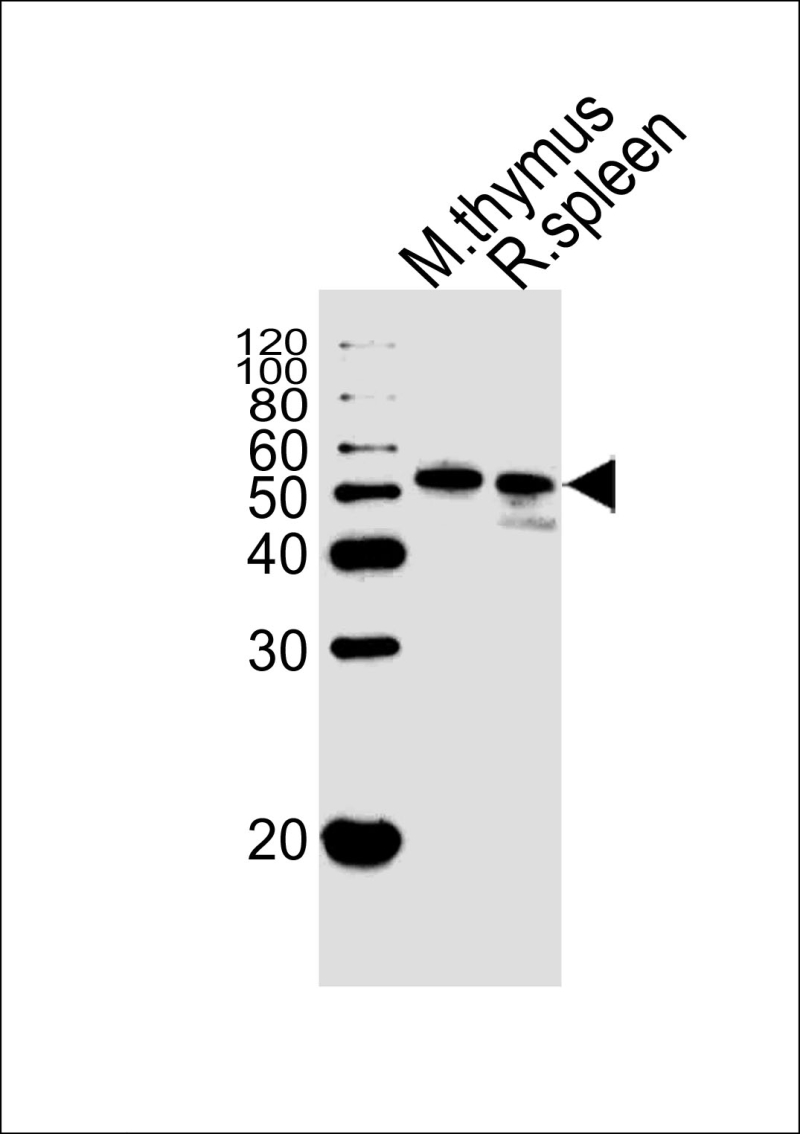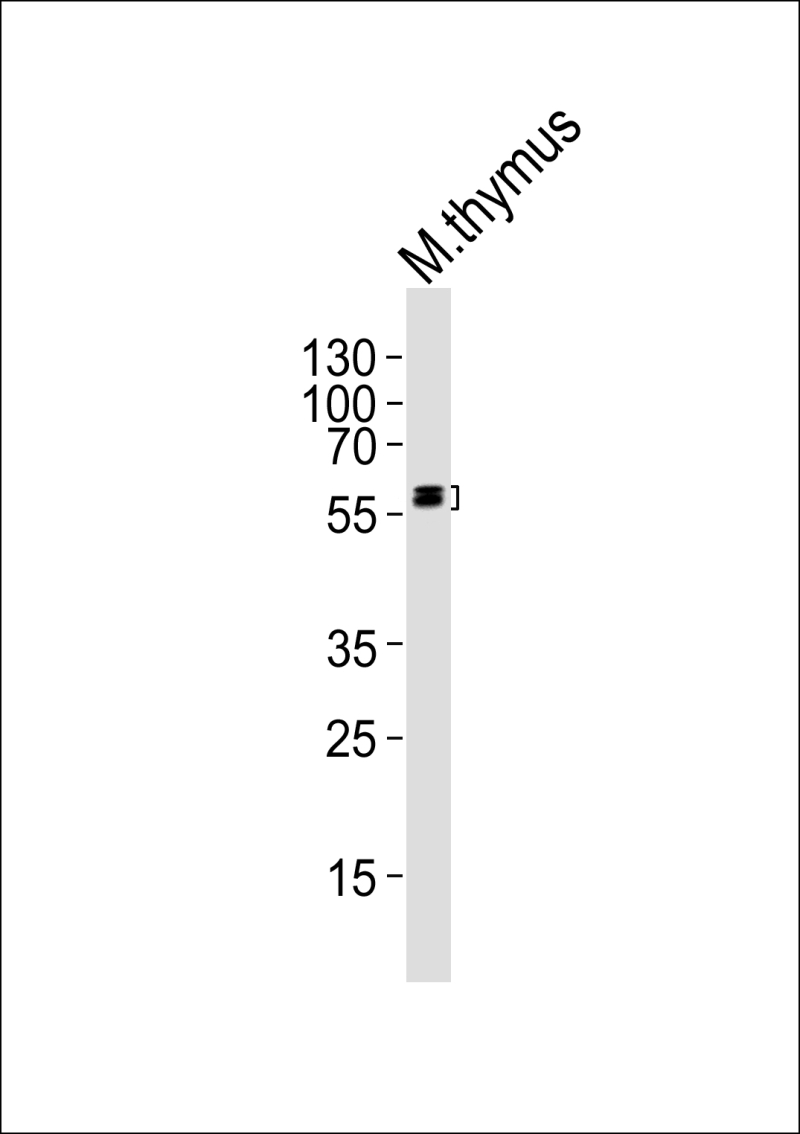

| WB | 1/500-1/1000 | Mouse, Rat |
| IF | 咨询技术 | Mouse, Rat |
| IHC | 咨询技术 | Mouse, Rat |
| ICC | 技术咨询 | Mouse, Rat |
| FCM | 咨询技术 | Mouse, Rat |
| Elisa | 咨询技术 | Mouse, Rat |
| Aliases | Tyrosine-protein kinase HCK, B-cell/myeloid kinase, BMK, Hematopoietic cell kinase, Hemopoietic cell kinase, p56-HCK/p59-HCK, Hck |
| Entrez GeneID | 15162 |
| WB Predicted band size | 59.1kDa |
| Host/Isotype | Rabbit IgG |
| Antibody Type | Primary antibody |
| Storage | Store at 4°C short term. Aliquot and store at -20°C long term. Avoid freeze/thaw cycles. |
| Species Reactivity | Mouse, Rat |
| Immunogen | This Mouse Hck antibody is generated from a rabbit immunized with a KLH conjugated synthetic peptide between 239-272 amino acids from the Central region of human Mouse Hck. |
+ +
以下是关于Mouse Hck抗体的3篇参考文献(信息基于公开文献概括,部分为示例性内容):
1. **"Characterization of a monoclonal antibody specific for the murine Hck tyrosine kinase"**
- 作者:Ziegler, S.F. et al.
- 摘要:该研究报道了一种针对小鼠Hck蛋白的单克隆抗体的开发与验证,通过免疫印迹和免疫沉淀实验证实其特异性,并用于检测Hck在骨髓细胞中的表达及激活状态。
2. **"Hck tyrosine kinase regulates TLR4 signaling in macrophages through interaction with MyD88 adaptor protein"**
- 作者:Mendoza, R. et al.
- 摘要:文章利用小鼠Hck特异性抗体,研究Hck在巨噬细胞Toll样受体信号通路中的作用,发现Hck通过与MyD88相互作用调控炎症反应,抗体用于Western blot和共聚焦显微成像分析。
3. **"Defective phagosome maturation in Hck-deficient macrophages revealed by antibody-based proteomic analysis"**
- 作者:Lowell, C.A. et al.
- 摘要:研究通过Hck基因敲除小鼠模型和特异性抗体,揭示Hck缺失导致巨噬细胞吞噬体成熟障碍,抗体应用于流式细胞术及免疫组织化学,验证蛋白表达缺失表型。
(注:若需真实文献,建议通过PubMed或Google Scholar以关键词“Hck antibody murine”或“Hck kinase antibody mouse”检索近年文章,并筛选涉及抗体开发或应用的论文。)
Mouse Hck (hematopoietic cell kinase) antibody is a research tool designed to detect and study the Hck protein, a member of the Src family of non-receptor tyrosine kinases. Hck is predominantly expressed in hematopoietic cells, including myeloid cells, B lymphocytes, and macrophages, where it plays a critical role in intracellular signaling pathways regulating immune responses, cell adhesion, proliferation, and differentiation.
The Hck gene encodes two alternatively spliced isoforms (p59Hck and p61Hck) differing in subcellular localization due to distinct N-terminal membrane-targeting sequences. Dysregulation of Hck activity has been linked to pathological conditions such as leukemia, chronic inflammation, and autoimmune diseases. For example, aberrant Hck activation is associated with BCR-ABL1-independent resistance in chronic myeloid leukemia and enhanced survival signals in myeloid malignancies.
Mouse Hck antibodies are typically developed using immunogens derived from specific regions of the murine Hck protein. These antibodies enable researchers to investigate Hck expression, phosphorylation status, and interactions through techniques like Western blotting, immunohistochemistry, flow cytometry, and co-immunoprecipitation. Their applications extend to studying Hck's role in immune cell activation, oncogenic signaling, and potential therapeutic targeting. Validation parameters often include reactivity confirmation in Hck-deficient cell lines and isoform specificity checks to ensure research accuracy.
×